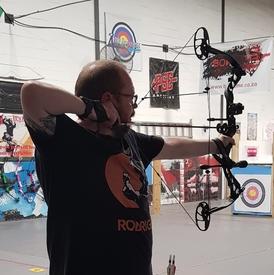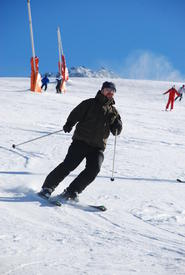do you measure/weigh cooked food? or each ingredient?

angelamichelle_xo
Posts: 646 Member
new to this (AWESOME) weighing food thing.
0
Replies
-
I weigh every ingredient and add it in my recipes so I can what the calories are per portion0
-
I weigh everything raw then cook it usually.0
-
Yes. Weigh raw.0
-
okay so how would you weigh... for example. cooking a scrambled egg with a splash of milk and a slice of ham...0
-
i dont weigh the eggs, I would make a recipe saying how many eggs, how much milk (50ml usually) and weigh the ham. Then you have your calories0
-
ok. do you ever use scoops to measure?0
-
I weigh raw and also by difference. So obviously a piece of ham is easy to weigh. Just put it on the scales. but if say I had some peanut butter, I frequently put the jar on the scales, zero it and then take out what I want. The digital scales read the value I have used. This saves getting another dish dirty.0
-
glenelliott5872 wrote: »I weigh raw and also by difference. So obviously a piece of ham is easy to weigh. Just put it on the scales. but if say I had some peanut butter, I frequently put the jar on the scales, zero it and then take out what I want. The digital scales read the value I have used. This saves getting another dish dirty.
smart.0 -
I always weigh raw food and use recipe builder to put it in. That way next time I make the meal I have it ready, and all I have to do is weigh it again.0
-
nice, ill be using that more.0
-
angelamichelle_xo wrote: »okay so how would you weigh... for example. cooking a scrambled egg with a splash of milk and a slice of ham...
Weigh each thing as you go along. I tend to microwave scrambled eggs so,
1) Put microwave dish on scales, tare it to zero. Crack eggs into the dish and note the weight of the raw eggs.
2) Put milk container on the scales, tare to zero. Add a splash of milk to the dish, then reweigh the milk container taking the negative weight as the amount.
3) Adding the ham is again easy, just weigh it and add ^^
The first time using new ingredients is always a bit of a pain finding them in the database - as sometimes what you come across does not have accurate calories listed, so I'll often cross check to the USDA database. But after that it's easy as they are then in your frequent food list.
If its a common meal, I'll use the quick tools to remember this meal - and the next time just adjust the weights as needed.
0 -
I measure before. Careful though to log it right
For example, raw chicken is 100 cal for 100 grams
But cooked chicken (let's say grilled) looses lots of water and it's more 160 cal for 100 grams.
So to maintain a standard I weigh and log everything raw0 -
Some smart ideas here, thanks for the tips!0
-
angelamichelle_xo wrote: »new to this (AWESOME) weighing food thing.
I do both0 -
glenelliott5872 wrote: »I weigh raw and also by difference. So obviously a piece of ham is easy to weigh. Just put it on the scales. but if say I had some peanut butter, I frequently put the jar on the scales, zero it and then take out what I want. The digital scales read the value I have used. This saves getting another dish dirty.
Never thought of measuring PB this way. Sooooo much easier. Ty0 -
Dreysander wrote: »I weigh everything raw then cook it usually.
What about if something is frozen? Like veggies or meat?
0 -
Dreysander wrote: »I weigh everything raw then cook it usually.
What about if something is frozen? Like veggies or meat?
If veggies are frozen then its already weighed out. 60grams is 60 calories, then you just use a food scale.
Same thing with meat. If not then google the nutrition value and use that.0 -
AdrianChr92 wrote: »I measure before. Careful though to log it right
For example, raw chicken is 100 cal for 100 grams
But cooked chicken (let's say grilled) looses lots of water and it's more 160 cal for 100 grams.
So to maintain a standard I weigh and log everything raw
but what about the (grilled) 60 calories youre actually eating? you skip out on logging it.0 -
angelamichelle_xo wrote: »AdrianChr92 wrote: »I measure before. Careful though to log it right
For example, raw chicken is 100 cal for 100 grams
But cooked chicken (let's say grilled) looses lots of water and it's more 160 cal for 100 grams.
So to maintain a standard I weigh and log everything raw
but what about the (grilled) 60 calories youre actually eating? you skip out on logging it.
Nothing changes, is still 160 calories for 4 oz or 112 grams. after it cooks re-weight it.
Its still 160 calories for 4 oz, 112 grams the end result its you get to eat more volume.0 -
angelamichelle_xo wrote: »AdrianChr92 wrote: »I measure before. Careful though to log it right
For example, raw chicken is 100 cal for 100 grams
But cooked chicken (let's say grilled) looses lots of water and it's more 160 cal for 100 grams.
So to maintain a standard I weigh and log everything raw
but what about the (grilled) 60 calories youre actually eating? you skip out on logging it.
To put this clearly, the calories in the piece of chicken don't change, the weight does.
100 g of raw chicken might be 100 calories (this is hypothetical, not real numbers).
After cooking, 85 g of roasted chicken would be 100 calories.
Same chicken, same calories, but cooked (in dry heat) chicken has more calories per gram, since it lost water and weighs less now.0
This discussion has been closed.
Categories
- All Categories
- 1.4M Health, Wellness and Goals
- 397K Introduce Yourself
- 44.2K Getting Started
- 260.9K Health and Weight Loss
- 176.3K Food and Nutrition
- 47.6K Recipes
- 232.8K Fitness and Exercise
- 455 Sleep, Mindfulness and Overall Wellness
- 6.5K Goal: Maintaining Weight
- 8.7K Goal: Gaining Weight and Body Building
- 153.3K Motivation and Support
- 8.3K Challenges
- 1.3K Debate Club
- 96.5K Chit-Chat
- 2.6K Fun and Games
- 4.5K MyFitnessPal Information
- 16 News and Announcements
- 18 MyFitnessPal Academy
- 1.4K Feature Suggestions and Ideas
- 3.1K MyFitnessPal Tech Support Questions












